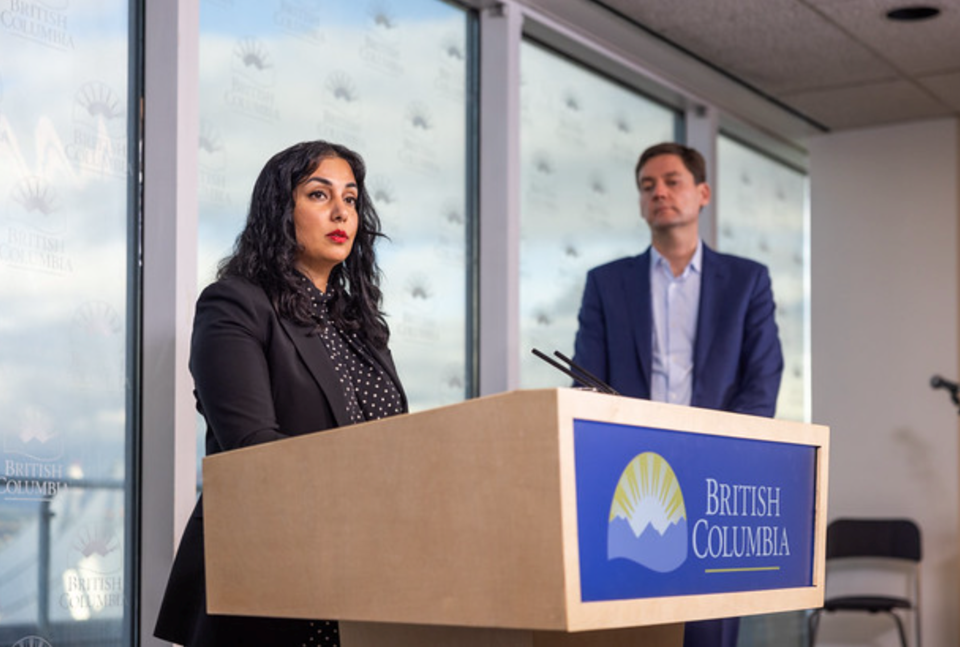A group of lawyers challenging legislation that dissolves the Law Society of BC says Premier David Eby is dodging questions leading up to a trial in October.
The Trial Lawyers Association of BC, led by criminal defence lawyer Kevin Westell, is contesting the new Legal Professions Act (LPA), which amalgamates lawyers, notaries and paralegals under one new regulator, strips the bar of independence and as such is unconstitutional.
The act (Bill 21) passed in May 2024 and was immediately challenged in B.C. Supreme Court by the association and, in a separate claim, the society.
Before trial, the association is seeking information from Eby, via a discovery (a question-and-answer session).
“The premier’s efforts to avoid answering questions about the Legal Professions Act is unsurprising. His government claims the LPA will advance access to justice by lowering the cost of legal services, but can’t point to anything indicating that the legislation will actually do that,” said the association’s vice-president Rebecca McConchie in a statement Jan. 6.
“Discovery would require Premier Eby to confront the baselessness of the government’s stated justification for this legislation,” added McConchie.
In a court-filed response on Dec. 20, the B.C. attorney general stated it is “long-settled” law that a cabinet member should not be examined for discovery unless they have particular knowledge that can’t be obtained from another witness, which is the case here with government lawyer Katharine Armitage who worked full-time on developing the bill from January 2022 to May 2024.
Additionally, Eby is further immune to discovery since he cannot be compelled to attend and give evidence while the Legislative Assembly is in session.
The attorney general's office told Glacier Media it could not comment on the association's statement and reiterated its response in court.
On Jan. 8, the association responded to the attorney general, claiming Eby “was integrally involved in developing and progressing what would become Bill 21” while he was attorney general before becoming premier in November 2022.
The association stated the law is clear that their choice to question Eby should not be interfered with unless there is “very strong cause.”
And, the lawyers asserted, because the legislation was passed in “unseemly haste” and the issues “strike at the core of our system of governance and justice, and the fact the premier is busy, and does not wish to answer questions under oath, is of little import when placed on those scales of measure.”
Alternatively, if the court does not approve Eby’s discovery then current Attorney General Nikki Sharma ought to submit to questioning, the association stated.
A judge is now scheduled to decide if Eby will submit to discovery on Jan. 14.
If the government’s application to not have Eby submit to discovery is approved, the association warned the court that the effect would be to prevent the association from obtaining material evidence, thus depriving the public and the court of a full record concerning the challenge.
The association claims the act infringes on the independence of the bar (lawyers).
Restricting government influence on the court system and lawyers, who are tasked to defend citizens against the state, is considered a key component of the rule of law and thus a democratic society.
The act, says the association, has aspects baked into it that would reduce the influence of lawyers on the new regulator thus eroding self-regulation of the legal industry.
.
One initial concern of the society during consultation on the reforms was the composition of lawyers on the board of directors.
Under the new 17-member board, lawyers will retain a slim majority (of nine). Sharma has claimed the government is “stepping back” by discontinuing the attorney general from being on the new board (as it was on the old one) while also appointing a smaller ratio of government appointees. The new board, however, might include notaries, paralegals and more public members (who may also be lawyers).
Another concern from the society is how within the new regulator seemingly comes before ensuring lawyers control the regulator.
Bill 21 provides that at least seven of the 13 transitional board and Indigenous council members be Indigenous while there is no requirement they be lawyers.
“As a result, Bill 21 provides that the first rules governing the practice of law and conduct of lawyers in British Columbia post-transition to a new regulator will be established by non-lawyers,” the society claims.
On Dec. 30, the Indigenous Bar Association in Canada applied to be an intervenor in the society’s case.



